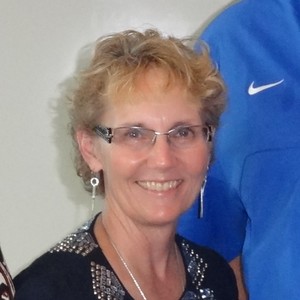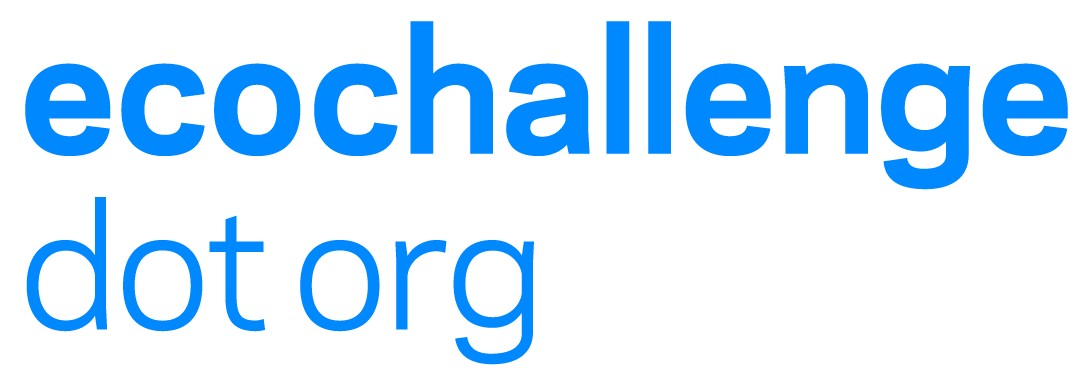We are all connected and important. When we allow ourselves to learn and live with others, we truly enhance to world we live in - and move toward a peaceful existence
Shayne Magdoff
POINTS TOTAL
- 0 TODAY
- 0 THIS WEEK
- 617 TOTAL
participant impact
-
UP TO289gallons of waterhave been saved
-
UP TO12hoursvolunteered
-
UP TO265minutesspent learning
-
UP TO5.8poundsfood waste prevented
-
UP TO12pounds of CO2have been saved
-
UP TO34zero-waste mealsconsumed
Shayne's actions
Health & Equity
Support Indigenous & First Nations Communities
SDG #10 Reduced Inequalities
I will spend 120 learning about the past and present indigenous communities in my regions and what I can do to be supportive.
Climate & Ecosystems
Support Local Pollinators
SDG #15 Life On Land
At least 30% of crops and 90% of flowering plants rely on pollinators to produce fruit. I will spend 60 minutes researching which plants support local pollinators and plant some in my area.
Climate & Ecosystems
Learn About Invasive Species
SDG #14 & 15
I will spend 60 minutes learning about invasive species and ways to reduce their impacts.
Basic Needs & Security
Make Zero-Waste Meals
SDG #2 Zero Hunger
I will cook 1 meal(s) with zero waste each day.
Health & Equity
Safe Disposal of Medications and Household Chemicals
SDG #3 Health & Well-Being
I will spend 30 minutes learning about how and where to dispose of medications and chemicals properly.
Basic Needs & Security
Volunteer
SDG #1 No Poverty
In my community, I will volunteer at a community shelter, food pantry or soup kitchen.
Basic Needs & Security
Know Your Produce
SDG #2 Zero Hunger
I will visit ewg.org to learn about and use their Clean 15 and Dirty Dozen produce lists.
Participant Feed
Reflection, encouragement, and relationship building are all important aspects of getting a new habit to stick.
Share thoughts, encourage others, and reinforce positive new habits on the Feed.
To get started, share “your why.” Why did you join the challenge and choose the actions you did?
-
REFLECTION QUESTIONHealth & Equity Support Indigenous & First Nations CommunitiesWhy is it important to honor native and indigenous peoples and cultures? What have you learned that is important to you? If you identify with or are a member of an indigenous group, how does your community practice sustainability?
 Shayne Magdoff 4/30/2022 4:51 PMIt's seems so logical to me to reach out and find out what our world/place was before we got here. I am not only speaking of our native Americans but those in Australia, New Zealand, Hawaii, Alaska or where ever we roam. The native and indigenous peoples all over the world were always connected to our earth, found ways to use what was there and live life. Our ways are NOT necessarily the right ways. We are the ones that have a lot to learn from the people who came before us. Kind of like looking to the past at your family roots and the like.
Shayne Magdoff 4/30/2022 4:51 PMIt's seems so logical to me to reach out and find out what our world/place was before we got here. I am not only speaking of our native Americans but those in Australia, New Zealand, Hawaii, Alaska or where ever we roam. The native and indigenous peoples all over the world were always connected to our earth, found ways to use what was there and live life. Our ways are NOT necessarily the right ways. We are the ones that have a lot to learn from the people who came before us. Kind of like looking to the past at your family roots and the like.
We are all connected and important. When we allow ourselves to learn and live with others, we truly enhance to world we live in - and move toward a peaceful existence -
REFLECTION QUESTIONHealth & Equity Safe Disposal of Medications and Household ChemicalsDo you have any tips for others on finding locations that accept products for safe disposal?
 Shayne Magdoff 4/29/2022 9:01 AMSustainable NCW just launched it's Waste Wizard:
Shayne Magdoff 4/29/2022 9:01 AMSustainable NCW just launched it's Waste Wizard:
sustainablencw.org/wastewizard and it is awesome. Just search for want to want to recycle or dispose of and the answer is at your fingertips. Not only where - but the address, directions, phone number etc. Really a one stop shop.
I know we allow medical sharps etc. to be brought to city hall and we have noticed how many more people are using that service. We also take expired medicines.-
 Shayne Magdoff 4/30/2022 7:58 AMDitto
Shayne Magdoff 4/30/2022 7:58 AMDitto -
 Jeanne Poirier 4/29/2022 8:35 PMIt is easy to use once you connect.
Jeanne Poirier 4/29/2022 8:35 PMIt is easy to use once you connect.
So good to see you and touch base this past weekend!
More soon -
-
-
 Shayne Magdoff 4/29/2022 8:58 AMIt's hard to believe that this year's eco challenge is almost over. Have to say that although i do a lot to help sustain our environment, I still learn new things each time I participate. Probably the most significant thing is researching various topics during my reflection questions. Not that I don't know what they are talking about, just that there is so much more to learn.
Shayne Magdoff 4/29/2022 8:58 AMIt's hard to believe that this year's eco challenge is almost over. Have to say that although i do a lot to help sustain our environment, I still learn new things each time I participate. Probably the most significant thing is researching various topics during my reflection questions. Not that I don't know what they are talking about, just that there is so much more to learn. -
REFLECTION QUESTIONClimate & Ecosystems Learn About Invasive SpeciesWhat is one invasive species in your region and how does it impact your region's ecosystem?
 Shayne Magdoff 4/25/2022 10:16 AMAn invasive species is an organism that is not indigenous, or native, to an area.
Shayne Magdoff 4/25/2022 10:16 AMAn invasive species is an organism that is not indigenous, or native, to an area.
Invasive species can cause great economic and environmental harm to the new area, but not all non-native species are invasive. Most of the food crops grown in the United States, including popular varieties of wheat, tomatoes, and rice, are not native to the region.
To be invasive, a species must adapt to the new area easily. It must reproduce quickly. It must harm property, the economy, or the native plants and animals of the region.
Sometimes this may be done inadvertently.
Zebra mussels arrived in the Great Lakes of North America stuck to large ships that traveled between the two regions. There are now so many zebra mussels in the Great Lakes that they have threatened native species. Small zebra mussels clog the cooling systems in boat engines, while larger ones have damaged water pipes at power plants throughout the Great Lakes region.
Some species are brought on purpose maybe in the form of pest control. Other times, introduced species are brought in as pets or decorative displays.
Introduced species multiply too quickly and become invasive.
Other invasive species came from pets that escaped or were released into the wild. We have all heard about Burmese pythons in the Everglades, a swampy area of south Florida. The huge snakes have no natural predators in The Everglades as they do in Asia. The eat many local species like white ibis and limpkin, two types of wading birds.
Invasive species can thrive as they outcompete native species for food. Bighead and silver carp are two large species of fish that escaped from fish farms in the 1990s and are now common in the Missouri River of North America. These fish feed on plankton, tiny organisms floating in the water. Many native fish species, such as paddlefish, also feed on plankton. The feeding cycle of the paddlefish is slower than that of the carp. There are now so many carp in the lower Missouri River that paddlefish do not have enough food.
Sometimes invasive species can destroy habitat, places where other plants and animals naturally live. Nutria are large rodents native to South America. Ranchers brought them to North America in the 1900s, hoping to raise them for their fur. When unsuccessful, nutria were released into the wild . Today, they are a major pest in the Gulf Coast and Chesapeake Bay regions of the United States. Nutria eat tall grasses and rushes. These plants are vital to the regions' marshy wetlands. They provide food, nesting sites, and shelter for many organisms. They also help secure sediment and soil, preventing the erosion of land. Nutria destroy the area’s food web and habitat by consuming the wetland grasses.
There is a lot to learn about invasive species, the kinds of species, where they have currently been brought and caused damage and how best to understand the repercussions if you do decide to introduce them.
-
REFLECTION QUESTIONClimate & Ecosystems Support Local PollinatorsWhy is it important to take care of pollinators? Do you have a favorite pollinator?
 Shayne Magdoff 4/23/2022 5:09 PMPollinators are vital to creating and maintaining the habitats and ecosystems that many animals rely on for food and shelter. Worldwide, over half the diet of fats and oils comes from crops pollinated by animals. They facilitate the reproduction in 90% of the world’s flowering plants. They are responsible for 1 out of every 3 bites of food we eat. I am lucky as I seem to have plants that bees love so my garden always does well. And my yard seems to supply lots of birds with food.
Shayne Magdoff 4/23/2022 5:09 PMPollinators are vital to creating and maintaining the habitats and ecosystems that many animals rely on for food and shelter. Worldwide, over half the diet of fats and oils comes from crops pollinated by animals. They facilitate the reproduction in 90% of the world’s flowering plants. They are responsible for 1 out of every 3 bites of food we eat. I am lucky as I seem to have plants that bees love so my garden always does well. And my yard seems to supply lots of birds with food.
And it’s not just bees that are doing all the work. Butterflies, birds, beetles, bats, wasps and even flies are important in the pollination process. But despite the importance of pollinators, they are taken for granted all too often.
-
 Jeanne Poirier 4/23/2022 7:35 PMLearn so much from you Shayne! Often I'm tempted to be annoyed by insects - especially wasps from your list above. 1 in 3 bites we eat - wow! Good on you and your garden. Take care and keep posting!!
Jeanne Poirier 4/23/2022 7:35 PMLearn so much from you Shayne! Often I'm tempted to be annoyed by insects - especially wasps from your list above. 1 in 3 bites we eat - wow! Good on you and your garden. Take care and keep posting!!
-
-
REFLECTION QUESTIONBasic Needs & Security Know Your ProduceWhat surprised you about the two produce lists? How will you use these lists for your grocery shopping? Have you used these lists before?
 Shayne Magdoff 4/23/2022 5:00 PMI had heard about the list before but never really investigated.
Shayne Magdoff 4/23/2022 5:00 PMI had heard about the list before but never really investigated.
We eat all the allowable fruits and veggies and most of the dirty dozen accept spinach and kale.
While I was researching about the dirty dozen I came across a site Taste of Home that tells you how to clean the dirty dozen. Quite interesting. I have attached the file below. Not sure you will be able to read it but there's a chance.-
 Jeanne Poirier 4/23/2022 7:36 PMWonder if it would work in the "add image" box?? Worth a try please.
Jeanne Poirier 4/23/2022 7:36 PMWonder if it would work in the "add image" box?? Worth a try please.
-
-
REFLECTION QUESTIONBasic Needs & Security VolunteerWhat was one of your most memorable volunteer experiences, and why? What would you like to volunteer for next, and why?
 Shayne Magdoff 4/21/2022 11:30 AMYears ago, before I moved to Washington, I belonged to a group "Women's Club of New Iberia." It was when Reading Is Fundamental just began taking hold. We would go to various elementary school classes and read stories - generally dressing in character. It was so fun.
Shayne Magdoff 4/21/2022 11:30 AMYears ago, before I moved to Washington, I belonged to a group "Women's Club of New Iberia." It was when Reading Is Fundamental just began taking hold. We would go to various elementary school classes and read stories - generally dressing in character. It was so fun.
Another volunteer experience was when I was Youth Group Advisor for 12 teenage kids. We had meetings, we pulled together for various helpful projects, traveled the southeast for conferences - kids are so great. I was always so impressed with each of them.
I currently volunteer for several non- profits, but in the future I would either like to volunteer in some way with kids or the elderly. I believe it builds connectiveness in community-
 Sue Kane 4/21/2022 9:40 PMI bet the kids loved you!
Sue Kane 4/21/2022 9:40 PMI bet the kids loved you! -
 Jeanne Poirier 4/21/2022 7:53 PMYou probably are already thinking about how to combine kids and elderly.
Jeanne Poirier 4/21/2022 7:53 PMYou probably are already thinking about how to combine kids and elderly.
-
-
REFLECTION QUESTIONBasic Needs & Security Make Zero-Waste MealsHow did you incorporate using an entire vegetable (skins, peels, tops, and stalks) during one of your meal preps? What's something new you're going to try that is a zero-waste meal practice?
 Shayne Magdoff 4/21/2022 11:24 AMThat aspect of no meat meals is easy. We always use the skin and peel on apples, cucumbers, celery etc.
Shayne Magdoff 4/21/2022 11:24 AMThat aspect of no meat meals is easy. We always use the skin and peel on apples, cucumbers, celery etc.
Another aspect to zero waste - is my compost and my chickens (who eat just about anything.-
 Jeanne Poirier 4/21/2022 7:52 PMCircular permaculture - good on you Shayne!
Jeanne Poirier 4/21/2022 7:52 PMCircular permaculture - good on you Shayne!
-
-
 Shayne Magdoff 4/17/2022 10:01 AMRecently I have been reviewing what is recyclable and where to bring the item. Some things I didn't know were recyclable - Bread tab closures can be brought to DOLCO.
Shayne Magdoff 4/17/2022 10:01 AMRecently I have been reviewing what is recyclable and where to bring the item. Some things I didn't know were recyclable - Bread tab closures can be brought to DOLCO.
By accident when I was in Target I noticed a bin that accepted glass. I did not take that on face value so i called to verify. But they DO accept glass - and the person assured me that their vendors would only take the product to an accredited resource. They also had a bin labeled Landfill, so I tend to believe them.-
 Jeanne Poirier 4/17/2022 5:10 PMWow - bread tab closures as in the little square plastic? Awesome to know this and about Target - I'll check on those bins when I go next time. Thanks Shayne!
Jeanne Poirier 4/17/2022 5:10 PMWow - bread tab closures as in the little square plastic? Awesome to know this and about Target - I'll check on those bins when I go next time. Thanks Shayne!
-
-
 Shayne Magdoff 4/14/2022 3:58 PMCan't wait for the City of East Wenatchee to sell bare root trees on April 23rd. On our way to be a tree city!
Shayne Magdoff 4/14/2022 3:58 PMCan't wait for the City of East Wenatchee to sell bare root trees on April 23rd. On our way to be a tree city!
